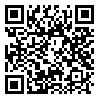BibTeX | RIS | EndNote | Medlars | ProCite | Reference Manager | RefWorks
Send citation to:
URL: http://salmandj.uswr.ac.ir/article-1-2890-en.html


 , Mahnaz Solhi2
, Mahnaz Solhi2 

 , Mahshid Forughan3
, Mahshid Forughan3 

 , Akram Ezattifard1
, Akram Ezattifard1 

 , Neda Ghahremanzadeh2
, Neda Ghahremanzadeh2 

 , Fateme Rezaei4
, Fateme Rezaei4 

 , Hossein Dargahi *5
, Hossein Dargahi *5 


2- Department of Health Sciences and Health Education, School of Health, Iran University of Medical Sciences, Tehran, Iran.
3- Department of Ageing, Iranian Research Center on Ageing, University of Social Welfare and Rehabilitation Sciences, Tehran, Iran.
4- Department of Health in Disasters and Emergencies, School of Health Management and Information Sciences, Isfahan University of Medical Sciences, Isfahan, Iran.
5- Health Information Management, Health Information Management Research Center, School of Public Health, Tehran University of Medical Science, Tehran, Iran. ,
Objectives The increase in the aged population in all countries, including Iran, is accompanied by economic, social, and healthcare challenges. This study aimed to investigate the relationship of social support with general health among older adults in the west of Tehran, Iran.
Methods & Materials This descriptive-analytical study was conducted on 300 people over 60 years old, covered by the health centers in the west of Tehran in 2022-2023. The data collection tools included a sociodemographic checklist, the 28-item general health questionnaire (GHQ-28), and the social support appraisals (SS-A) scale. The data were analyzed using descriptive statistics, Pearson’s correlation test, linear regression analysis, independent t-test, and chi-square test in SPSS software, versiaon 26, considering a significant level of P<0.05.
Results The mean total GHQ-28 score was 37.5±10.1 in men and 37.1±12 in women. The mean total SS-A score was 47.6±7.8 in men and 48.6±7.5 in women, indicating a poor status. There was a significant and positive correlation between GHQ-28 and SS-A scores (in total and in domains). For a one-unit decrease in the total SS-A score, the total GHQ-28 score increases (worsens) by 30.9%.
Conclusion Increasing social support for the elderly from family, friends, and others can improve the general health of older adults in Tehran, which should be considered by the government by providing welfare and rehabilitation services, financial support, and counselling.
Received: 2024/07/31 | Accepted: 2024/11/10 | Published: 2026/03/01
| Rights and permissions | |
 |
This work is licensed under a Creative Commons Attribution-NonCommercial 4.0 International License. |





